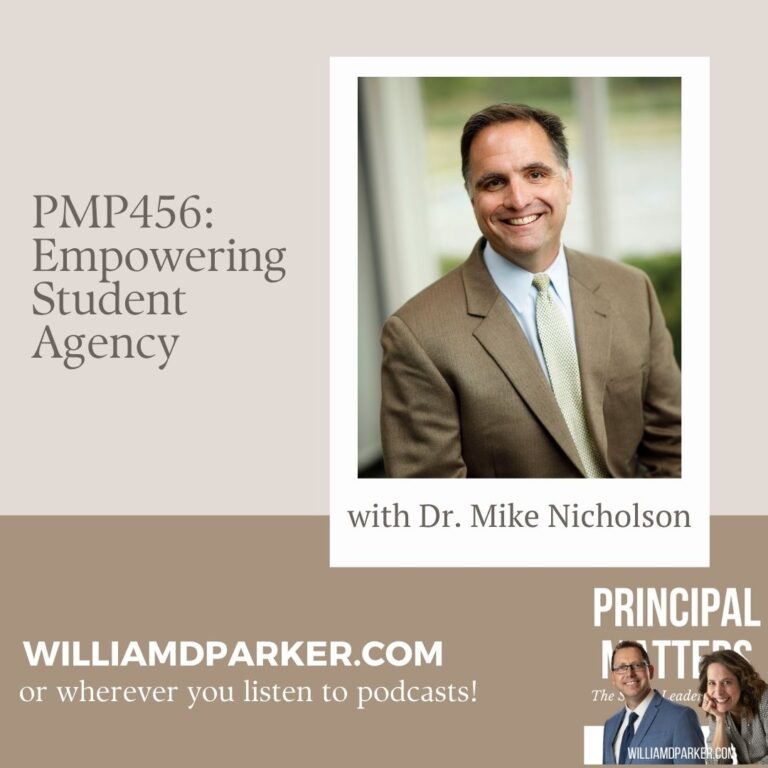Podcast: Play in new window | Download
How are you anticipating the start of a new school year?

This week I wanted to share some thoughts from a previous post as reminders for your new school year:
Predicting Your School Climate
Sometimes my left elbow aches. I have a scar there from when I broke it falling from a horse almost twenty years ago. When it starts hurting, I can usually be certain the weather will turn stormy. My aching elbow reminds me of another story. When I was a boy, I often helped on my Granddad’s family farm. His brother was my Uncle Jimmy. One day Uncle Jimmy and I were driving in his pick-up truck. The windows were down, and I was hanging my arm out of it and playing in the breeze as we rumbled down the gravel roadway.
As we passed a nearby pond, the cattle were gathering around for watering, and two calves were prancing about the field, butting heads and chasing one another. Uncle Jimmy pulled the truck to a stop and nodded that direction.
“See those calves?” he asked.
“Yes sir.”
“There’s a storm coming.”
“What do you mean?” I asked.
The skies were blue, the weather warm. (This was long before the days of GPS or Smart-phones.) “Whenever you see calves acting like that, you can be sure there’s bad weather on the way.”
I didn’t argue or ask anymore questions. He put the truck back in drive, and we went onto the next job in quiet thought. The next morning I woke up to the crash of lightening and the rumble of a thunderstorm. Uncle Jimmy had spent all his life on the farm, and it should have been no surprise that he could predict the weather by watching the behavior of his cattle.
Predicting School Climate
Sometimes I like to remind myself that the ups and downs of a school climate are often predictable. Obviously, plenty of unpredictables happen too, but there are “seasons” we face each year that shouldn’t take us by surprise. One of the those seasons is summer hiring. Another is the start of school.
As you approach the start of school, you can expect that teachers, students, and parents will want answers to the following questions:
- What is my schedule?
- What can I expect each day?
- What are the ground-rules in school-wide and in my classes?
It seems so simple in concept, but sometimes we forget to keep an eye out for the cues of what is coming next. For instance, from the principal’s office, start of school means tasks like:
- Updating/printing faculty handbooks and duty rosters
- Communicating with teachers dates of new teacher training and professional development
- Updating websites and media outlets with dates for schedule pick-up, freshman orientation, and start of school
And as we approach day one, the anticipation, nervous energy, dread, and excitement all mix together for the rush we call beginning the school year.
Helpful Start-of-School Questions
Whatever season you are preparing to face, don’t forget to take time to study your landscape. One way to be prepare is by relying on those who have been down the road ahead of you. For teachers, I like to recommend, Harry Wong’s First Days Of School for a great reminder on the processes, procedures, and ground-rules students need and expect day one of school. In it, he outlines the essentials for establishing, organizing, and implementing good routines and procedures for students. I call it “teaching with both sides of your brain” or “teaching with one hand while managing with the other.”
Harry Wong likes to remind teachers of seven things students will want to know on the first day of school:
- Am I in the right room?
- Where am I supposed to sit?
- Who is the teacher as a person?
- Will the teacher treat me as a human being?
- What are the rules in this classroom?
- What will I be doing this year?
- How will I be graded?
The same common-sense approach works for all areas of school. The routines we create help set the tone and safe-environment students and adults both need to see learning flourish.
Ten years ago, when I took my first position as an assistant principal, my superintendent at the time had also been a longtime veteran elementary teacher. When I asked her for advice on school leadership, her response was practical but very wise. She said, “Think of every setting–whether you are with children or adults–as a classroom.”
In other words, adults are no different than students when it comes to the need to know what to expect. With that in mind, here are seven questions we should anticipate our teachers, staff or students will have before the first days of school:
- What is my schedule?
- What extra duties, assignments or activities might I expect?
- Who is my administrator as a person?
- Will he/she treat me as a human being?
- What are the expectations, procedures, policies in our school?
- What am I expected to accomplish this year?
- How will I be evaluated, mentored, graded or coached?
Whether it is in the classroom or school-wide, all of us thrive on routine. That is why we learn schedules, establish arriving/departing routines, create calendars in advance, provide observation/evaluation instruments in advance, and maintain and consistently support policies and procedures. Otherwise, the alternative is chaos. And chaos is not fertile ground for learning or teaching.
How do you answer these questions for your teams? Just like we would for students: Keep it simple. Use both sides of your brain. Instruct and manage. Run your school or organization like a good classroom. Ask yourself what are the qualities, routines, and preparation of your favorite and most effective teachers?
Let’s Wrap This Up
Sometimes when we get overwhelmed with the seemingly endless list of to-do’s that come with school life, we have to think back to simple lessons like the ones I have learned from my elbow and Uncle Jimmy. You can’t stop the weather that’s coming, but you can look ahead, stay alert, and be prepared. When the next season comes, you can trust God for what you can’t control and weather the sunshine or the storms ahead with confidence. Because it takes both sunshine and rain to produce a good harvest.
Now It’s Your Turn
How are you anticipating your student and teacher questions ahead of time? What are some additional ‘start of the school year’ routines or resources that you plan to use this year?
Here’s wishing you a great week, and thanks again for doing what matters!
Sign-Up For Free Updates and Ebook
When you enter your email address below, you will automatically receive my newest posts and a free Ebook, 8 Hats: Essential Roles for School Leaders. Let’s keep learning together!
Subscribe for free weekly updates and receive free e-book!
(function($) {window.fnames = new Array(); window.ftypes = new Array();fnames[0]=’EMAIL’;ftypes[0]=’email’;fnames[1]=’FNAME’;ftypes[1]=’text’;fnames[2]=’LNAME’;ftypes[2]=’text’;}(jQuery));var $mcj = jQuery.noConflict(true);
Principal Matters–The Book!

School leaders are very busy, so each of the twenty-four chapters is designed as a quick-read and followed with take-action questions for follow-up or reflection. If you want practical ideas on understanding your purpose, managing school teams, dealing with challenges, and leading with courage, action, motivation, and teamwork, go HERE to pick up a copy for you or your team.
Messaging Matters

Harness the power of messaging to create a culture of acknowledgment, respect, and celebration. Written specially for leaders, this title is divided into three parts, helping readers to maximize their role as chief communicators with students, teachers, and parents and community. Each chapter includes suggestions for using digital tools to enhance messaging and ends with reflection questions and practical next steps.


